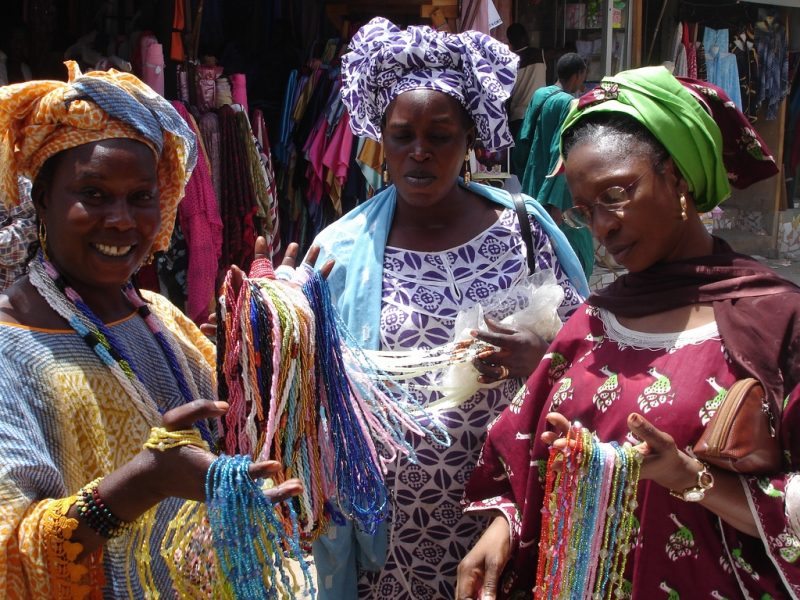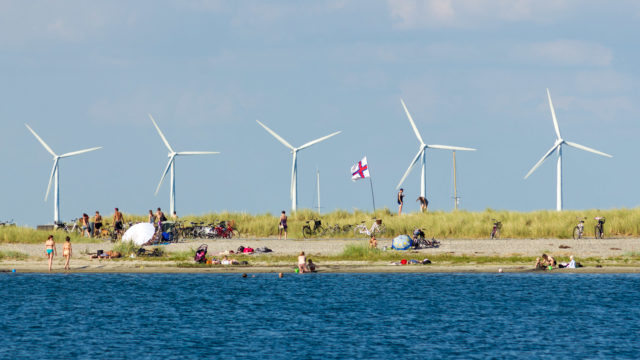Our economy is broken. Here's how to fix it.
The Paris Agreement & Sustainable Development Goals have set the direction. Our new Green Economy Principles tell us how to get there.

Last week at the UN Headquarters in New York, experts, ministers, civil servants and development workers gathered from around the world to discuss sustainable development. But they weren’t the only ones who were mobilising.
For the last year or so, young people have been marching in their thousands – their hundreds of thousands – to demand action on climate change and the environment. They have been filling the streets, and they will continue to do so; young activists are planning their biggest mass protest yet in September, a world-wide climate strike to demand action.
This wave of protest poses a reality check for those of us working in the world of environment and development, whether we’re politicians or policy analysts. The challenge is, can we go out to meet those young people, look them in the eye, and tell them: we have a plan, a programme, which is going to safeguard your future?
Last week, we launched a new group of partnering organisations to push for that change, comprising leading development, policy and economics institutions from around the world. And the first step towards that plan: the Principles, Priorities and Pathways to an inclusive green economy.
We know the destination: now for the journey
We’ve been privileged over the last few years to be part of several real unifying moments in the UN: the Paris Agreement and the Sustainable Development Goals. Moments when we have come together and decided exactly where we want to get to - and working together has been key to setting those objectives. However, so far there have been fewer moments of unifying action: we have yet to agree on how we are going to get there.
“ The only way we can keep a stable world is to act fast. Finance ministers must understand that their conservatism is the greatest threat to a stable economy.”
One thing we do know: if we carry on with business as usual, we’re not going to achieve any of our ambitions. In 2018 fossil fuels were still 80% of our energy mix. Oil and gas subsidies (including externalities) are still worth over US$5.2 trillion and continue to grow, according to the IMF. We have a $100 trillion bond market, of which green bonds make up only 0.5%. Two thirds of the world's population own two percent of the wealth.
We must change this. We must be able to look those young protesters in the eye and say we have an alternative, a plan for transformation that will safeguard their futures.
A new approach to our economies
The organisational collaboration group 1that we launched last week in New York is a first step for that plan for economic transformation.
If we want to achieve the Sustainable Development Goals, we must have a sustainable development economy. If we want to meet the Paris Agreement, we must have a net zero economy. And if we want to tackle rampant inequality, we must have a fair and equitable economy.
Our current economies are none of these things. We need to run our economies differently; we need new institutions, new values, and a new shared script. To navigate this transition, our grouping of cooperative organisations offers a compass: the Principles, Pathways & Priorities for Inclusive Green Economies.
These principles are based on wide consultation, close co-operation, and the shared expertise and insight of ten global organisations with decades of experience. But they’re also based on common sense; they feel intuitively right to people in the street as well as policy experts or politicians.
- First, the Wellbeing principle: all people contribute to and share prosperity, not just a few.
- The Justice principle: equity within and between generations.
- The Planetary Boundaries principle: that the new economy safeguards, restores and invests in nature.
- The Efficiency and Sufficiency principle: production and consumption must be sustainable.
- And finally the Good Governance principle: that our economies are guided by integrated, accountable and resilient institutions.
These Principles are a guide to action, a blueprint for change, and a formative code that all future green economies must and shall be informed by. They are supported by two new knowledge platforms from GGKP on green industry and green finance, giving policymakers and professionals access to the latest research, data, guidance, and tools from leading experts and institutions. Learn more about the Principles – and the pathways and priorities for how to best to achieve them – by downloading your copy here.
Conclusion
The Principles would not have been possible without the support and expertise of our new global collaboration. From cultural shifts, workers’ rights and peoples movements, to business, investment, policy expertise, and cutting edge research, the member organisations of our new collective now offer that same support and expertise to other organisations working on this transition. We cannot make this happen on our own; we hope we can make it happen together with you.
To conclude: if we want to deliver the Sustainable Development Goals, if we want to deliver on our climate commitments, we must have action. And the only thing commensurate is an economic transformation. Across the development sector, around the UN, and on the streets of our towns and cities, we can sense a shift: minds are now focusing on the transition and resolve is growing to change our economies. Everyone is talking about the green economy, but now we need finance ministers, treasury officials and economics professionals to take the lead. We have mapped a way for the holders of the purse-strings to really help - now they need to step up.
- Oliver Greenfield & the Partners for Inclusive Green Economies

Footnotes
The Partners for Inclusive Green Economies comprises the Global Green Growth Institute (GGGI); the Green Economy Coalition; the Green Growth Knowledge Partnership (GGKP); the ILO; the OECD; the UN Development Programme (UNDP); UN Environment; the UN Partnership for Action on Green Economy (PAGE); the UNDP-UNEP Poverty-Environment Action for Sustainable Development Goals; and Deutsche Gesellschaft für Internationale Zusammenarbeit (GIZ).


